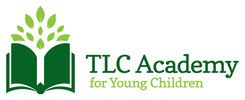ABOUT US
|
TLC PHILOSOPHY
TLC Academy is a “Reggio Emilia-Inspired” early childhood learning environment. The Reggio-Emilia schools originated in Northern Italy in 1945 and were formed by parents. There is a rich and compelling history behind these school. There is substantial research to support the practices which is why TLC has adopted many of their beliefs. Our commitment to low-ratios and small group sizes allows us to put these practices into action. We believe that children are born with a sense of wonder and it is our job as teachers to facilitate and cultivate their natural instinct to learn. Below our the primary beliefs that all TLC teachers embrace and implement on a daily basis.
Image of the Child At the heart of the Reggio-Emilia philosophy is the idea that children are born with a sense of wonder and are full of potential and that they are competent and interested in connecting with the world around them. At TLC, we embrace this philosophy by intently observing, listening, and documenting what each child has to offer us as adults. Beautiful Environments The physical space within a classroom is considered to be the third teacher. At TLC, we believe our classrooms should have a "home" feel and should be a warm and inviting space for the children to explore and inspire their curiosity. The environment should encourage imaginative play and be a beautiful space for growing and learning. Emergent Curriculum An emergent curriculum is one that is inspired by a child and developed by the teacher. Our teachers are trained to use their classroom observations as a guide for planning projects and experiences for your child. The teachers master the art of capturing each child's learning by using photography, video, and class work. Our goal is to genuinely listen to children in order to plan a path for learning. Community of Collaboration: TLC is dedicated to providing an organizational structure that enables teachers to collaborate, plan, and reflect on best practices. This encourages our teachers and the center to continuously improve so that we establish the best possible environment for the children in our care. Working alongside parents with open communication and setting goals for children is part of our daily culture. |
|
Call Us: 330-655-2797
187 Ravenna Street Hudson, Ohio 44236 |
Website by Wren Communication
|
